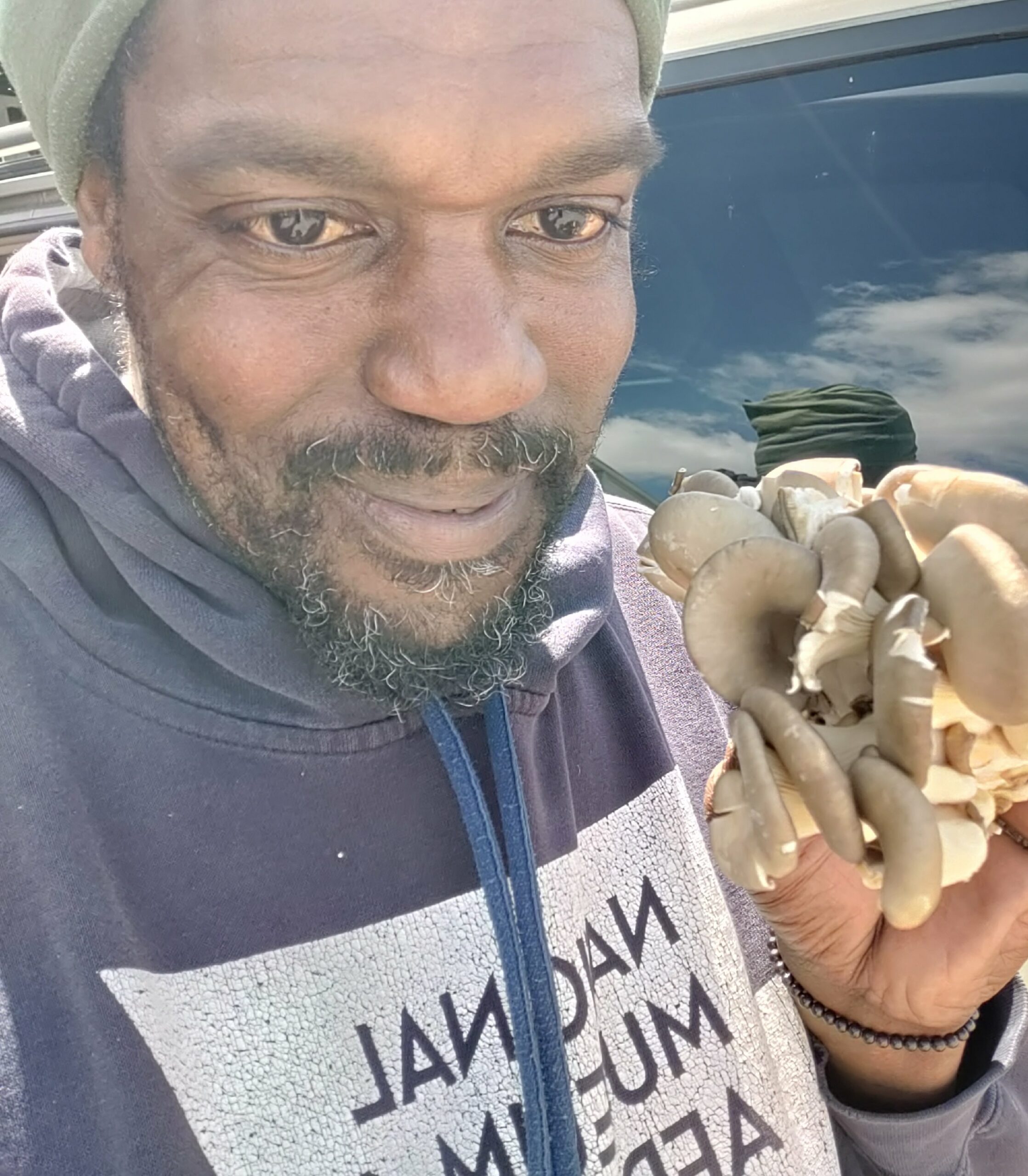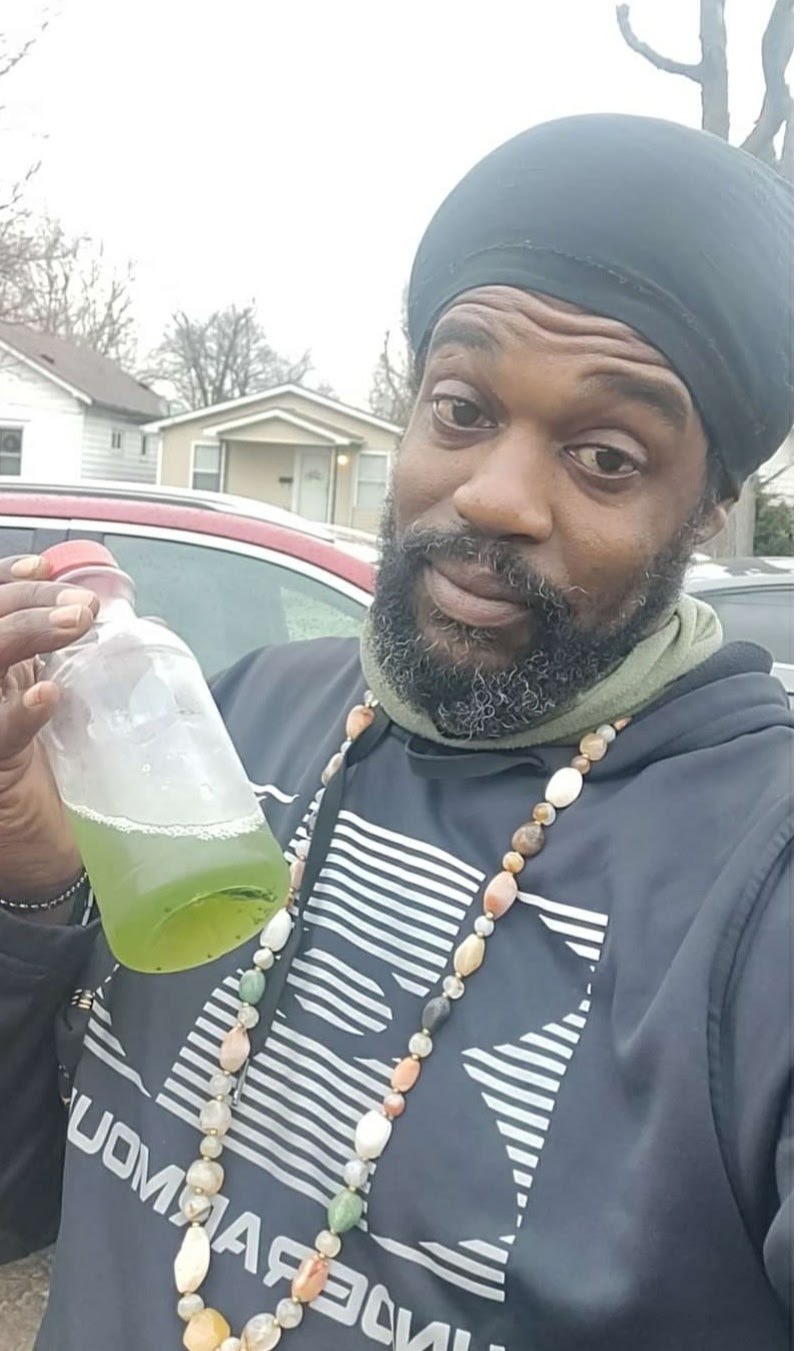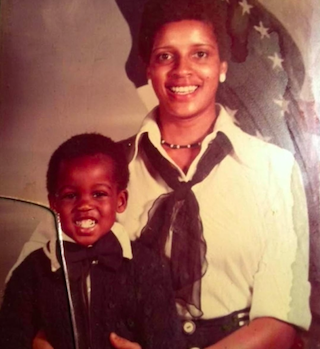Common Table grad forages for mushrooms, finds happiness
 Be happy. No matter what.
Be happy. No matter what.
That’s the life philosophy of TiDal Garrett, a 2020 graduate of Common Table whose soup is featured this week in the program’s soup and bread subscription series.
It’s a simple philosophy, he admits, but not necessarily easy. “But you just have to be happy, no matter what, you know? Because it could always be worse.”
Referring to himself as “a nature man,” TiDal says he finds his happiness outdoors and, while that is obviously the case, if you talk to him long you suspect that he really finds his happiness in giving to others. “Well, I do like to give more than I get.”
Indeed.
TiDal makes a living on the land, selling and delivering fresh fruits and vegetables, as well as homespun juices of fruits and vegetables that he whips up for customers twice a week. (Find him on Facebook at Cheffty Juice and Mushrooms.) He forages for mushrooms and other wild foods and leads foraging expeditions. And he packages and delivers homemade soup and bread to subscribers to Common Table’s popular six-week series. But ultimately, all of that is actually about giving.
 “The juices and the vegetables … I want people to be healthy. I want them to open up to new tastes and get away from an acidic diet. Right? Think about it. You can clean a grill with a lemon, but not with a lime.” Fifteen years ago, TiDal weighed more than 300 pounds, had heart palpitations, and was close to full-fledged diabetes. He was in massage school where he learned “what the body can actually do” and gave his body a chance to heal itself. Now he wants others to have that same opportunity.
“The juices and the vegetables … I want people to be healthy. I want them to open up to new tastes and get away from an acidic diet. Right? Think about it. You can clean a grill with a lemon, but not with a lime.” Fifteen years ago, TiDal weighed more than 300 pounds, had heart palpitations, and was close to full-fledged diabetes. He was in massage school where he learned “what the body can actually do” and gave his body a chance to heal itself. Now he wants others to have that same opportunity.
He taught himself to forage for wild foods and tells his students now “not to take my word for it, but to study these things for themselves.” At a time when we all have knowledge available at our fingertips, “everyone knows something and no one knows everything,” TiDal says with a chuckle. “We can all learn from each other.”
One thing TiDal has learned is that even apparent negatives can be positives. A poisonous mushroom, for example, ground up and micro-dosed, can clear the body of toxins. Garden produce that rots makes robust compost. And a dandelion weed is delicious. (“It’s not a weed,” TiDal insists. “It’s a plant that shows up where you don’t want it, like a carrot in a green bean patch.”)
At Common Table, TiDal learned about the parameters of food safety, like proper temperatures and safe handling. “I think regulations keep me from being creative, but I learned that regulations can be the reason things work.” TiDal said he has been cooking since he was 2, when his Grandma “stood me on a stool at the stove and taught me how to boil an egg.”
 Several years ago, after witnessing two kids fighting in the street in the NuLu district, TiDal decided to turn a deserted city block into a garden where he taught young people how to work with nature to produce food and to invest in something other than fighting or even sports. (“Sports is a competition. Someone is going to win and someone is going to lose. Why not work together to grow something.”) He taught his young neighbors how to plant, weed, water, tend, and harvest. He took them to markets where they learned how to sell their produce. And, perhaps most importantly, he taught them to deliver the fruit of their labor as gifts to the elderly in their neighborhood.
Several years ago, after witnessing two kids fighting in the street in the NuLu district, TiDal decided to turn a deserted city block into a garden where he taught young people how to work with nature to produce food and to invest in something other than fighting or even sports. (“Sports is a competition. Someone is going to win and someone is going to lose. Why not work together to grow something.”) He taught his young neighbors how to plant, weed, water, tend, and harvest. He took them to markets where they learned how to sell their produce. And, perhaps most importantly, he taught them to deliver the fruit of their labor as gifts to the elderly in their neighborhood.
The city eventually shut the garden down, but TiDal refuses to be angry about that. Years later one of those young people tracked him down to ask him why his own garden’s tomatoes weren’t flourishing. “He used to be shorter than me and now he’s 6 foot 2,” TiDal says. “To know that he was still gardening, it meant the world to me. It makes me choke up even now.”
It makes him happy. No matter what.

